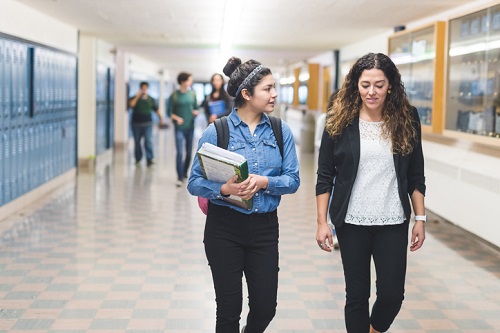
by Loren Bridge
A recent article discussing the inclusion of single-sex classes in co-educational environments ignores the very real benefits of single-sex schools
The notion that a single-sex class can replicate a single-sex campus fails to understand the impact of a learning environment tailored to how girls learn as well as a social environment free of competition and social pressure from boys. It is not just the classroom that impacts on academic results, gender stereotyping and the lack of confidence in girls; it is also the mixed-gender campus environment.
Unconscious stereotyping and biases often exist in co-educational schools, from teachers encouraging boys to do STEM subjects while directing girls to humanities subjects, to research showing that girls are less confident and have lower self-esteem and body image issues.
In a single-sex school, girls are free to be themselves inside and outside the classroom. As a student attending an Alliance of Girls’ Schools leadership conference said, ‘Boys? It’s really no issue not having them at school; I mean we see them EVERYWHERE else. We’re at school to focus on our studies, and being around girls makes it a lot easier to do that.’
There are ample opportunities for students at single-sex schools to interact, negotiate, discuss and compete with students of the opposite sex during school organised co-ed activities. Students also have lives outside of school with healthy relationships with opposite sex relatives, family friends, and peers they meet through extra-curricular activities.
Research by Dr Terry Fitzsimmons from The University of Queensland shows that while multiple studies demonstrate girls’ confidence is lower than boys throughout high school, this is not the case in single-sex schools where girls are equally as confident as boys. This has led Dr Fitzsimmons’ team to conclude that there is something about the mixed-gender environments that is negatively impacting on girls’ and women’s self-confidence.
Research consistently demonstrates the benefits of single-sex schooling, including the existence of a social and cultural environment free from gender stereotyping and sexism, has a positive impact on female students developing skills that are advantageous for leadership, self-confidence and life success.
In fact, recent data from a US study showed that teenage girls do worse in their education, careers and social lives when they have more high-achieving boys in their classes. Conversely, girls achieve better results in maths and science when they have high achieving girls in their class and are more likely to complete a bachelor’s degree.
Girls’ schools provide an environment where girls are not exposed to stereotype threat; where they are not intimidated by high-achieving boys who are assumed to be more naturally talented at maths; or where teachers unintentionally give preference to boys.
Instead, girls are exposed at a class level, a year-group level and a whole-school level to high-achieving girls who inspire them to achieve well in STEM and go on to complete degrees and have high workforce participation.
Co-ed models are often favoured because of their financial advantages and enrolment capacity, as co-ed schools enrol both boys and girls, potentially doubling their enrolment intake. The reality is that it is more cost-effective to establish single-sex classes in a co-ed school than to establish a single-sex school. However, the research shows that this economic compromise short-changes girls, who benefit most from an all-female campus.
When it comes to the oft posed question of how students at single-sex schools will ever learn to mix with the opposite sex, given the social disadvantage of their unrealistic school environment, this anachronistic view is totally at odds with the 21st-century reality of single-sex-schools and the experiences of their students.
As a recent study from the University of California, Los Angeles (UCLA) showed, graduates of all-girls’ schools are better set up for future success, leading the report authors to conclude ‘it is no surprise that some of the world’s leading women were educated in all-girls environments.’
Loren Bridge is the executive officer at the Alliance of Girls’ Schools Australasia


